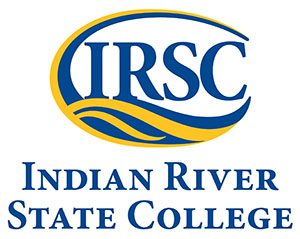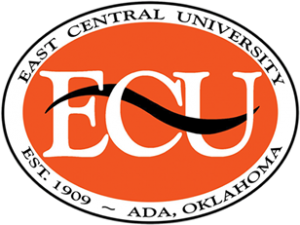After earning a Bachelor’s in Accounting degree, whether it be through distance learning or a traditional on-campus program, graduates can look forward to rewarding careers in the field of business. Accounting is often known as “the language of business.” It provides students with a strong foundation for success in a dynamic and challenging career. Despite economic downturns, the demand for accountants continues to remain strong, and the U.S. Bureau of Labor Statistics (BLS) projects that employment of accountants and auditors will grow 10 percent between 2016 and 2026, faster than the average for most occupations. If you are looking to earn an undergraduate accounting degree and get started on this rewarding career path, check out our list of the top 15 most affordable Bachelor’s in Accounting degrees to get started.
Methodology
Regardless of whether you wish to work with nonprofit, public, or private organizations, there are hundreds of undergraduate programs in accounting to choose from. There are a number of factors to consider when making your decision, however, such as tuition rates and student:faculty ratios. Narrowing down the available schools and degrees can be overwhelming, which is why we compiled a list of the top-rated, most affordable bachelor’s degrees in accounting. To start, we consulted the National Center for Education Statistics (NCES) and conducted a search for the term “Bachelor’s in Accounting degree.” We then narrowed down the initial pool of more than 200 search results into the top 15 based on the following methodology. To ensure we provided the most up-to-date information possible, we cross-referenced our data with each school’s website.
Average Cost of Attendance
As you begin to narrow down your search, you may find yourself looking at the cost of tuition before you dig into the program itself. Although there is nothing wrong with keeping tuition rates in mind. Tuition is arguably one of the most important factors when choosing a school. Remember, though, that cost is not everything, and you should also consider whether the schools on your short-list offer internships, practicum experiences, specializations or concentrations, or other must-haves for your ideal academic experience. For this ranking, we ranked tuition based on one year of tuition for in-state students who are taking a 15-hour course load per semester. For your reference, we also provided out-of-state tuition rates.
Points:
Under $7,500: 3 points
$7,500 to $15,000: 2 points
$15,001 and above: 1 point
Student:Faculty Ratio
Student:faculty ratios are a fantastic way to judge the size of the school. When looking at ratios, consider your own academic background and personal preferences in terms of:
- individual attention
- intimate experiences and relationships
- accountability
- and the availability of job fairs
- athletics
- student-run clubs and organizations.
Although large schools have their benefits, small schools are more likely to consist of fewer students and, as a result, smaller classes and more opportunities for one-on-one studies. Therefore, we decided to award the maximum number of points to colleges and universities that reported student:faculty ratios of 10 or fewer students for every professor.
Points:
10:1 or less: 3 points
11:1 to 15:1: 2 points
Greater than 15:1: 1 point
Ranking Top 15 Undergraduate Degree Programs in Accounting
15. Central Methodist University
Fayette, Missouri

Points: 4
Program Website
Central Methodist University offers an affordable Bachelor of Accountancy degree designed for students with strong analytical, critical thinking, and business skills who enjoy working with numbers. The low cost program focuses on a number of areas, including:
- management
- marketing
- auditing
- taxes
Courses are offered in:
- marketing
- business finance
- cost accounting
- fraud examination.
Students also have the opportunity to participate in hands-on learning projects while discovering how to:
- create financial statements
- complete tax returns
- market campaigns
- participate in professional presentations
Graduates are prepared for careers in fields such as financial planning, consulting, tax, government, and business.
Degree Options:
Bachelor of Accountancy
In-State Tuition: $7,800
Out-of-State Tuition: $7,800
Student-to-Faculty Ratio: 12:1
14. Northeastern State University of Oklahoma
Tahlequah, Oklahoma

Points: 4
Program Website
The College of Business and Technology at the Northeastern State University of Oklahoma offers a low-cost Bachelor of Business Administration in Accounting degree. It prepares graduates for the Certified Management Accountant (CMA) certification or the Certified Public Accountant (CPA) license. Students complete coursework in the accounting core in areas such as:
- income tax accounting
- cost accounting
- accounting information systems
Students may then choose one of two areas of emphasis: managerial accounting or public accounting. Graduates are prepared to think critically and communicate effectively to serve as an ethical, objective member of the management team.
Degree Options:
Bachelor of Business Administration in Accounting
Bachelor of Business Administration in Finance
In-State Tuition: $7,267
Out-of-State Tuition: $15,579
Student-to-Faculty Ratio: 18:1
13. Indian River State College
Fort Pierce, Florida

Points: 4
Program Website
Indian River State College offers an inexpensive BS in Accounting program that allows students to build upon what they have learned in their associate program. They earn a bachelor’s degree in just two years. Students may take coursework in:
- organizational behavior
- ethics and values
- accounting information systems
- corporate finance
- accounting theory
- cost accounting
- management information systems
Through the affordable degree program, students also gain experience with specialized software. They also learn how to maintain and update accounting records, including:
- profit and loss statements
- accounts payable and receivable
- receipts
- expenditures
Graduates are prepared for a number of roles, including:
- fraud examiner
- budget analyst
- auditor
- bookkeeper
- financial manager
- accountant.
Degree Options:
Accounting B.S.
In-State Tuition: $7,026
Out-of-State Tuition: $16,081
Student-to-Faculty Ratio: 23:1
12. East Central University
Ada, Oklahoma

Points: 4
Program Website
The 124-hour affordable BS in Accounting at East Central University is comprised of general education requirements, core courses in the Stonecipher School of Business, and classes within the accounting major. Areas of study include:
- marketing
- management information systems
- accounting
- income tax
- principles of management
- auditing
- business strategy and policy
Students take between 15 and 16 hours per semester, completing the program within four years. Graduates are prepared to sit for the Certified Public Accountant (CPA) examination. They are also prepared for such careers as:
- auditors
- accountants
- business intelligence analysts
- entrepreneurs
- financial analysts
- risk managers
- tax advisors.
Degree Options:
Accounting – B.S.
In-State Tuition: $6,810
Out-of-State Tuition: $15,936
Student-to-Faculty Ratio: 18:1
11. CUNY Lehman College
Bronx, New York

Points: 4
Program Website
The Department of Economics and Business at CUNY Lehman College offers a low-cost BA in Accounting and a BS in Accounting. The BA program is comprised of 42 credits, including:
- six credits in business economics
- 30 credits in accounting
- six credits in law
The BS program is comprised of 60 credits, including:
- six credits in economics
- 33 credits in accounting
- three credits in an accounting elective
- six credits in law
- six credits in finance
Students must also complete two business statistics classes and one business writing course before graduating. The BA track prepares students for careers in public and private accounting, while the BS track is designed to help students prepare for professional certification.
Degree Options:
Bachelor of Arts in Accounting
Bachelor of Science in Accounting
In-State Tuition: $6,730
Out-of-State Tuition: $14,400
Student-to-Faculty Ratio: 17:1
10. Fort Hays State University
Hays, Kansas

Points: 4
Program Website
The affordable Bachelor of Business Administration degree with a major in accounting is offered at Fort Hays State University. The program prepares students for in-demand careers in both the private and public sectors. Offered by the Department of Economics, Finance & Accounting, this bachelor’s degree program is available online or on-campus. It’s comprised of:
- 55 credit hours in general education
- 27 hours in business core classes
- 30 credit hours in the accounting major
- nine credits in directed electives
- one three-credit elective course
Students can expect to take classes in:
- auditing
- income tax procedures
- accounting information systems
- intermediate accounting
- cost accounting
Degree Options:
Bachelor of Business Administration Degree With a Major in Accounting
In-State Tuition: $6,560
Out-of-State Tuition: $6,560
Student-to-Faculty Ratio: 17:1
9. Southeastern Oklahoma State University
Durant, Oklahoma

Points: 4
Program Website
The John Massey School of Business at Southeastern Oklahoma State University offers an inexpensive Bachelor of Business Administration in Accounting. It’s comprised of 44 semester hours in general education requirements and 70 semester hours of major requirements. In the major, students complete business core courses in:
- marketing, finance
- management
- auditing
- accounting information systems
- cost accounting
- income tax accounting
- intermediate accounting
Students round out their inexpensive degree with two courses, choosing from topics in:
- financial analysis and control
- advanced accounting
- governmental accounting
- forensic accounting
An internship and a seminar are also available for students looking to gain hands-on experience.
Degree Options:
Bachelor of Business Administration in Accounting
In-State Tuition: $6,240
Out-of-State Tuition: $14,880
Student-to-Faculty Ratio: 18:1
8. Florida Atlantic University
Boca Raton, Florida

Points: 4
Program Website
The College of Business at Florida Atlantic University offers an AACSB-accredited affordable online Bachelor of Business Administration with a major in accounting. Courses are offered completely online, and students may earn their degree within two years. The affordable online accounting major prepares students for entry-level positions in the accounting-related areas of government and business. They are also prepared to pursue advanced education in accounting. Students must complete 120 credit hours for the degree, including:
- general education requirements
- pre-business foundation courses
- business core courses
Classes in the accounting major cover topics such as:
- auditing
- business law
- federal taxation
- accounting information systems
- cost accounting.
Degree Options:
Online Bachelor of Business Administration With a Major in Accounting
In-State Tuition: $6,038
Out-of-State Tuition: $21,595
Student-to-Faculty Ratio: 24:1
7. Georgia Southwestern State University
Americus, Georgia

Points: 4
Program Website
The low-cost Bachelor of Business Administration in Accounting at Georgia Southwestern State University is available on-campus or online. This bachelor’s degree program is comprised of 60 hours of general education requirements and pre-core business coursework as well as:
- 24 hours of core business classes
- 24 hours of coursework in the major
- 12 hours of electives
Areas of study include:
- cost accounting
- nonprofit accounting
- income tax accounting
- auditing
- accounting systems
- cost accounting
- intermediate accounting
Graduates are prepared for careers as:
- accountants
- payroll clerks
- tax accountants
- budget analysts
- bookkeepers
- certified professional accountants.
Degree Options:
BBA-Accounting
In-State Tuition: $5,970
Out-of-State Tuition: $5,970
Student-to-Faculty Ratio: 18:1
6. Langston University
Langston, Oklahoma

Points: 4
Program Website
Langston University offers an inexpensive Bachelor of Business Administration in Accountancy. It’s designed for students seeking careers in public accounting and in nonprofit, governmental, and business organizations. Offered by the School of Business, this bachelor’s degree program is only available at LU-Tulsa. Students can earn their degree within four years. After completing general education coursework, students take key business classes in areas such as:
- business policy and strategy
- marketing
- macroeconomics and microeconomics
- management
- statistics
The accounting major is comprised of coursework in:
- internal auditing
- managerial accounting and control
- accounting theory
- cost accounting
- financial accounting
- principles of accounting.
Degree Options:
BBA: Accountancy
In-State Tuition: $5,950
Out-of-State Tuition: $13,300
Student-to-Faculty Ratio: 17:1
5. Utah Valley University
Orem, Utah

Points: 4
Program Website
The affordable BS in Accounting with an emphasis in general accounting at Utah Valley University is comprised of 120 credits of study. It offers a balanced applied and theoretical approach to a number of accounting and business disciplines. This bachelor’s degree program investigates topics such as:
- strategy
- operations
- law
- finance
- marketing
The curriculum consists of:
- 35 credits in general education requirements
- 62 credits in the discipline core
- 14 credits in electives
The program also includes nine credits in emphasis requirements such as:
- fraud examination
- corporate tax
- advanced management accounting
- auditing
- advanced financial accounting.
Degree Options:
Accounting – General Accounting Emphasis, B.S.
In-State Tuition: $5,726
Out-of-State Tuition: $16,296
Student-to-Faculty Ratio: 25:1
4. Dalton State College
Dalton, Georgia

Points: 4
Program Website
Students who pursue the low-cost BBA in Accounting at Dalton State College are prepared for in-demand careers in nonprofit, private, and public environments. The curriculum emphasizes areas in the accounting discipline such as:
- auditing financial statements
- understanding tax law and how it affects business decisions
- reporting and recording financial data
- gathering and using data for control and planning in the context of managerial accounting
Students complete general education requirements as well as business core classes and accounting core courses for a total program requirement of 122 to 123 credit hours.
Degree Options:
Bachelor of Business Administration in Accounting
In-State Tuition: $4,246
Out-of-State Tuition: $12,668
Student-to-Faculty Ratio: 21:1
3. Dickinson State University
Dickinson, North Dakota

Points: 5
Program Website
Dickinson State University’s affordable BBA with a major in accounting is comprised of:
- general education classes
- pre-major courses
- business core classes
- accounting major core courses
- electives
The program focuses on specific areas of business such as:
- marketing
- management
- entrepreneurship
The program investigates topics in the accounting discipline such as:
- auditing
- income tax
- government and nonprofit accounting
- intermediate accounting
- cost accounting
- computerized accounting
- advanced accounting
This bachelor’s degree program is available both online and on-campus in Bismarck, North Dakota. Students are required to complete 121 credit hours to graduate from the program.
Degree Options:
Bachelor of Business Administration With a Major in Accounting
In-State Tuition: $9,930
Out-of-State Tuition: $9,930
Student-to-Faculty Ratio: 10:1
2. University of Maine at Augusta
Augusta, Maine

Points: 5
Program Website
The University of Maine at Augusta offers an inexpensive BS in Business Administration with a major in accounting. It’s comprised of:
- nine credit hours in general electives
- 52 credit hours in general education requirements
- 60 credit hours in the major
It’s offered by the College of Professional Studies. This cheap bachelor’s degree program delves into topics of study such as:
- accounting information systems
- marketing
- operations management
- taxation
- financial reporting
- business law
Students also complete a concentration area such as:
- management accounting
- financial accounting
- governmental accounting
Internships are available for students looking to gain hands-on experience in a real-world setting.
Degree Options:
Bachelor of Science in Business Administration – Accounting Major
In-State Tuition: $6,990
Out-of-State Tuition: $8,730
Student-to-Faculty Ratio: 15:1
1. Mississippi Valley State University
Itta Bena, Mississippi

Points: 5
Program Website
Students pursuing the BS in Accounting at Mississippi Valley State University must complete 126 semester hours of coursework, including:
- general education requirements
- business classes
- accounting-focused courses
Those looking to sit for Mississippi’s Certified Public Accountant (CPA) examination must complete a total of 150 semester hours of coursework. Offered through the College of Professional Studies, the program focuses on areas of study that include:
- advanced accounting
- cost accounting
- auditing theory and practice
- accounting systems
- governmental, intermediate, managerial, and financial accounting
Students may also study tax and taxation systems as they relate to individuals, corporations, and partnerships.
Degree Options:
BS Accounting
In-State Tuition: $6,746
Out-of-State Tuition: $6,746
Student-to-Faculty Ratio: 15:1
Frequently Asked Questions
What are the Career Options for a Bachelor’s in Accounting Degree?
Many graduates who have earned an on-campus or online Bachelor’s in Accounting degree pursue careers in fields such as:
- government accounting
- management accounting
- internal auditing
Skilled in communication, analysis, and problem-solving, accounting students may also choose to pursue Certified Public Accountant (CPA) certification and advance as finance directors or controllers in supervisory roles. Three common career options for a Bachelor’s in Accounting degree include:
- Financial Examiners: Financial examiners analyze and review organizations’ financial information. These areas include:tax records, loan documentation, balance sheets, and audit reports. The goal is to ensure that their clients are complying with government standards and the law. They are also responsible for preparing examination reports, conducting risk assessments, evaluating real estate sales and transactions, and recommending appropriate corrective action.
- Personal Financial Advisors: These professionals advise individual clients on a number of financial matters, including insurance, budgets, estate planning, retirement, taxes, investing, and real estate. They are also responsible for recommending strategies to help their clients achieve their financial goals. They offer guidance in decision-making efforts, and assessing their clients’ liabilities and assets.
- Accountants and Auditors: These professionals report, analyze, prepare, and compile financial information. They ensure that their organization’s statements are accurate and comply with federal and state laws and accepted accounting principles. They are also responsible for preparing and filing tax documents. They make recommendations to improve the efficiency of their organization’s financial operations. They monitor procedures for internal control, and resolve discrepancies in financial records and statements.
Other careers may include:
- management analysts
- financial analysts
- appraisers and assessors of real estate
- statisticians
- operations research analysts
- business operations managers.
How Much Can You Earn in This Field?
The field of accounting is broad and encompasses a number of careers. Therefore, it can be difficult to pinpoint a specific salary for this industry. Many factors play a role in the salary one earns, including:
- the level of education
- level of hands-on experience
- location in which one intends to work
- the specific role for which one is applying.
Fortunately, the BLS has broken down salary information for several of the more common accounting careers as we have outlined below.
According to the BLS, personal financial advisors reportedly earned $88,890 per year as of May 2018, with the highest 10 percent earning more than $208,000 and the lowest 10 percent earning less than $41,590. The median annual salaries for personal financial advisors in the top industries in which they worked include:
- Commodity contracts, securities, and other financial investments and related activities: $97,090
- Management of enterprises and companies: $86,510
- Credit intermediation and related activities: $77,140
- Insurance carriers and related activities: $66,600
Next, financial examiners earned $80,180 per year as of May 2018, with the top 10 percent earning more than $154,590 and the bottom 10 percent earning less than $42,150. The average yearly earnings for this occupation in the top industries where financial examiners worked include:
- Federal government: $122,010
- Commodity contracts, securities, and other financial investments and related activities: $89,740
- Management of enterprises and companies: $85,440
- State government, excluding hospitals and education: $72,920
- Credit intermediation and related activities: $70,800
Finally, accountants and auditors reported earnings of $70,500 per year as of May 2018, with the highest 10 percent bringing home more than $122,840 and the lowest 10 percent earning less than $43,650. The median annual salaries for accountants and auditors were highest in the following industries:
- Insurance and finance: $74,690
- Management of enterprises and companies: $73,180
- Payroll, bookkeeping, tax preparation, and accounting services: $70,640
- Government: $68,420
What Courses Will You Take in a Bachelor’s Degree in Accounting?
All undergraduate degrees in accounting, whether they are offered online or on-campus, aim to prepare students to become precise and skilled financial experts. However, these programs are not created equal, and they will differ in a number of areas such as the time required to complete the degree, the cost of the program, the scheduling and availability of classes, the curriculum requirements, the style of instruction, and any concentrations or specializations offered. Some of the most common areas of emphasis one can expect in a bachelor’s in accounting degree include managerial accounting, financial analysis, public accountancy, information systems, fraud and forensic accounting, nonprofit accounting, and tax accountancy.
By the same token, the specific classes one will take in these programs will also vary depending on the program and school itself. However, there are a number of common classes offered in nearly every undergraduate accounting degree, including:
- Auditing
- Business Law
- Accounting
- Accounting Information Systems
- Federal Taxation
- Intermediate Accounting
- Cost Accounting
- Managerial Accounting
In addition, depending on the program and pathway you choose to follow, the curriculum may prepare you for the following licensures and/or certifications:
- Enrolled Agent
- Certified Financial Analyst
- Certified Internal Auditor
- Certified Management Accountant
- Certified Public Accountant
Does Accreditation Matter for Accounting Bachelor’s Degrees?
When choosing an accounting school to attend for your bachelor’s degree, it is critical to ensure that the program and/or school is accredited. Many employers and most graduate programs only recognize a bachelor’s degree from an accredited college or university. Most states mandate that applicants looking to sit for the Certified Public Accountant (CPA) examination hold an accredited accounting bachelor’s degree.
In addition to ensuring schools are either nationally or regionally accredited, look for programmatic accreditation, which is awarded when industry-specific accrediting agencies recognize certain courses of study offered at schools across the country. In the case of accounting, look for programs that are accredited by the International Assembly for Collegiate Business Education (IACBE), the Accreditation Council for Business Schools and Programs (ACBSP), or the Association to Advance Collegiate Schools of Business (AACSB).
How Long Will It Take To Earn a Bachelor’s Degree in Accounting?
Again, the time to completion will vary depending on the specific program and school. Although most accounting bachelor’s degrees can be completed in four years like other traditional undergraduate programs, this is not always the case. Some colleges and universities offer an accelerated pathway that allows students to graduate in as few as three years. Others require 150 credit hours of study versus the standard 120 hours in order to meet state requirements and allow students to be eligible to sit for the Certified Public Accountant (CPA) examination. In other cases, schools might tack on an extra year to create a “master’s in five” type of program that allows students to earn both their bachelor’s and master’s degree in as few as five years.
There are a number of factors that affect the length of a Bachelor’s in Accounting degree program. For instance, those pursuing an online-only degree may be able to complete the program more quickly than their on-campus counterparts because some online degrees allow students to proceed at their own pace. In some cases, students may even be eligible to double the number of credits they take per semester and thus cut their time to completion in half. Depending on the tuition structure as well as the school itself, an accelerated online degree can ultimately result in a more affordable academic experience. On the other hand, students who have work or family responsibilities may need to dedicate more than four years to their bachelor’s degree by taking courses on a part-time basis.
Are There Any Professional Organizations for Graduates With a Bachelor’s in Accounting Degree?
Being actively involved in a professional organization is an excellent way for professional accountants to develop the key competencies and relationships that are vital for success. Professional organizations offer a number of benefits to their members, including:
- current industry updates
- access to available jobs not listed elsewhere
- convenient access to continuing education opportunities and workshops
- mentoring opportunities
- certifications
The following are several of the top professional organizations for recipients of a bachelor’s in accounting degree.
- National Society of Accountants (NSA)
- Institute of Management Accountants (IMA)
- Association of International Certified Professional Accountants (AICPA)
- American Accounting Association (AAA)
- Institute of Internal Auditors (IIA)
- Professional Association of Small Business Accountants (PASBA)
How Do You Choose the Bachelor’s in Accounting Degree Program That’s the Right Fit?
Choosing the right Bachelor’s in Accounting degree program takes a great deal of research and thought. There are many factors that will affect your decision. For instance, would you like to attend a liberal arts college or a business school? Would you prefer to attend a smaller private college or a larger state university? Do you prefer an on-campus program or an online program? This is just a sampling of the questions you might ask yourself, and many of them lead to even more questions and considerations.
Also, keep in mind the tuition and cost of your education. Private schools and on-campus programs tend to cost more than state schools and online programs. Internet-based institutions that allow you to complete coursework at your own pace while you continue to work often help your bottom line. You must also consider whether you are looking to enroll on a part-time or full-time basis, which will ultimately affect the length of time you will need to devote to your education.
Once you ask yourself these questions, you can begin to narrow down the programs available to you. Carefully review the accreditation of each school as well as the curriculum it offers. Ensure that the schools you are interested in provide the specialization or concentration area you want to pursue. Also consider the exit requirements such as an internship, final project, or written thesis. Review whether or not the curriculum will prepare you to sit for the Certified Public Accountant (CPA) examination in your state if that is the path you are following.
Choosing an accounting bachelor’s degree is a personal decision, and only you can evaluate whether your educational needs will be met by any given school. We hope that the above-ranked list of schools serves as a helpful starting point in your search for the most affordable bachelor’s in accounting degree programs in the U.S.
AS Staff
This concludes our ranking of the top 15 most affordable bachelor’s degrees in accounting.
Other Rankings of Interest:
- 25 Online Bachelor’s Colleges Under $10K Net Price
- 25 Most Affordable Online Master’s of Social Work
- 30 Most Affordable Ph.D in Organizational Leadership Online
- 20 Most Affordable Ph.D in Training & Development Online
- 25 Most Affordable Online Master’s of Social Work
- 15 Most Affordable Ph.D in Computer & Information Systems Security Online
- 20 Most Affordable Women’s Colleges with Online Master’s Degrees
- 20 Most Affordable Online Master’s-Granting HBCUs
- 25 Most Affordable Online Master’s in Organizational Leadership
- 25 Most Affordable Online Bachelor’s in Organizational Leadership

 The Best Colleges
The Best Colleges The Lowest Costs
The Lowest Costs The Highest Returns
The Highest Returns